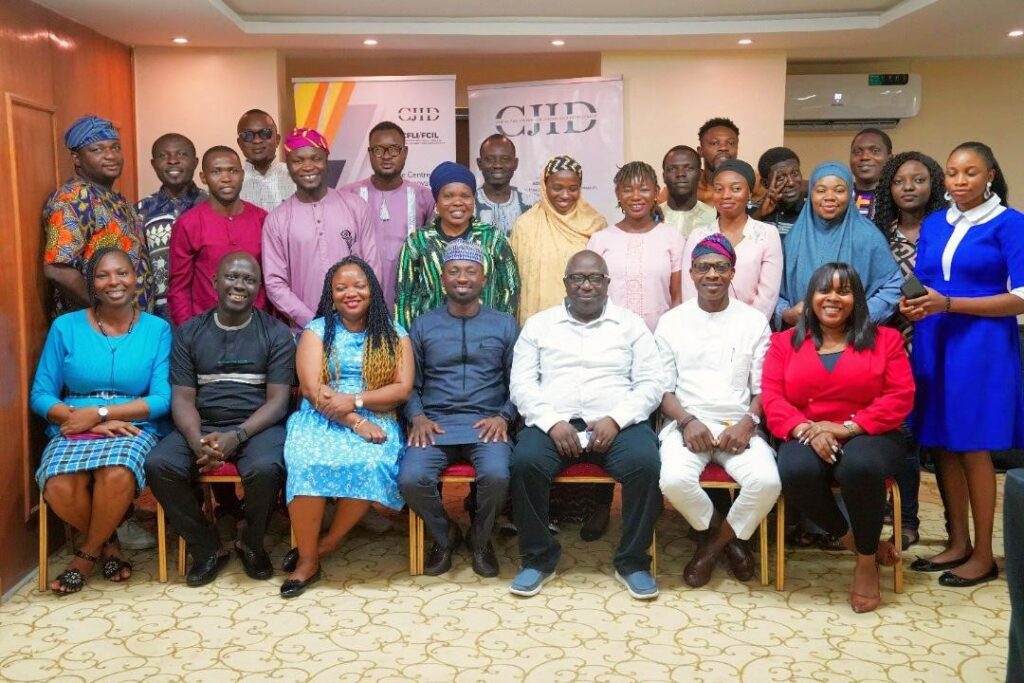Journalists in Nigeria have been challenged to improve their reporting of elections and be more security conscious.
The advice was given at a media training organized by the Centre for Journalism Innovation and Development (CJID) recently in Lagos where the need to promote and protect independent media that advances fundamental human rights was emphasized.
Fifty participants at the training learned from the top media professionals who spoke on election reporting, investigation, fact-checking, data journalism, inclusion, and other election issues.
Publisher of Premium Times, Dapo Olorunyomi said that journalism is that small arm of the media that ensures democratic governance, accountability and transparency.
Olorunyomi, enjoined the participants to be dedicated to their watchdog role as he dissected the democracy journalism interface session.
He encouraged the journalists to be committed to producing truthful, verifiable, and accurate reportage.
Managing Editor, Premium Times, Idris Akinbajo, while discussing ‘Investigative tips for reporting elections’, noted that most of the reportage of elections in Nigeria focuses on the politicians, not the people or policies.
“You cannot dig deep into any matter without you understanding it. This is why you see shallow investigative stories because no research was conducted. Before journalists can investigate violations of the electoral laws, they must understand the electoral acts,” he stated
The Executive Director of YIAGA Africa Samson Itodo, highlighted the top 10 provisions in the 2022 Electoral Act to drive home the understanding of the electoral legal framework.
“Journalists should not focus only on the constitution and electoral acts when covering or observing elections. Other pieces of information regulate elections and the constitution is one of them”.
Speaking on Data Journalism, Africa Editor, the Center for Collaborative Investigative Journalism Ajibola Amzat, said that on the scale of evidence, data ranks higher and therefore there is a need for more data-driven stories.
“Journalists should learn how to count well and verify the numbers they have counted because counting (Data) strengthens the credibility of your story,” he said.
Amzat urged the participants to interpret and tell stories about how data affects human lives, noting that “there is no data you cannot humanize”.
Editor of Dubawa, Kemi Busari trained the participants on deploying fact-checking and verification to stem the dangers to election and democracy.
Deputy Director of CJID, Busola Ajibola, made a case for inclusion in the election reportage and highlighted the groups at risk of exclusion during elections and asked for obstacles and limitations to be reported.
“We have the responsibility to write and inform the public about women and PWDs,” she added.
Participants acknowledged the sessions were robust and insightful:
Jeremiah Oluwaferanmi, a young journalist from Ekiti state said the training has helped him to have a new mindset and a better knowledge of election reporting and fact-checking.
“The facilitators were top-notch and puzzled questions were answered.
“I learnt that journalists are not celebrities. We are not to make noise. Even if we are to make the noise, we should make it through our reporting and set the right agenda”.
For Miss Adetutu Sobowale, a reporter with Platform times and Volunteer at FactCheck Elections, “the organizers exceeded my expectations. The facilitators went beyond providing safety tips on election observation.”
“There are some important facts about the election that most times journalists ignore. So they brought everything to light and now I am equipped with the knowledge and tools to report election.”
The Deputy Director CJID said the training, supported by the Canada Fund for Local Initiatives, was conceived due to the forthcoming election and security challenges journalists face in reporting on election matters.
At the end of the training, a certificate of participation was given to participants who are expected to produce in-depth, data-driven reports on the forthcoming election.


